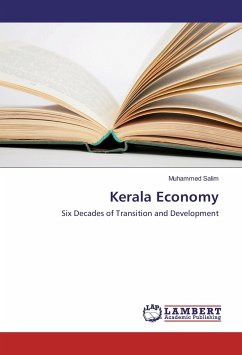
Nutritional Attainments among Tribal Communities
Fallacies in Theory and Practice
Versandkostenfrei!
Versandfertig in 6-10 Tagen
37,99 €
inkl. MwSt.

PAYBACK Punkte
19 °P sammeln!
Making childcare visible and rewarded goes very much against the mainstream economics. Since contemporary economics is strongly associated with a narrow belief that autonomous, self-interested agents inhabit the world, bringing in children and care requires a broadening of economic concepts at a fundamental level. Campaigns to raise the wages of ECCE staff will be successful only when children and care are recognised and valued in their own right, which will require society growing into a deeper and richer understanding of economic relations. This study observed that the younger age group of A...
Making childcare visible and rewarded goes very much against the mainstream economics. Since contemporary economics is strongly associated with a narrow belief that autonomous, self-interested agents inhabit the world, bringing in children and care requires a broadening of economic concepts at a fundamental level. Campaigns to raise the wages of ECCE staff will be successful only when children and care are recognised and valued in their own right, which will require society growing into a deeper and richer understanding of economic relations. This study observed that the younger age group of AW Workers are interested in shifting their job for a higher paid one. Such attitude has a tremendous detrimental effect on young children during their critical stages of development. ECCE workers, in spite of their critical interaction with young children in their formative years, receive lower compensation than most other occupations, which needs less effort and dedication. This study suggests several avenues for developing a coherent approach so as to mitigate this problem and improve the quality of the ECCE work force through thoughtful recruitment, retention and wage supplementation.












